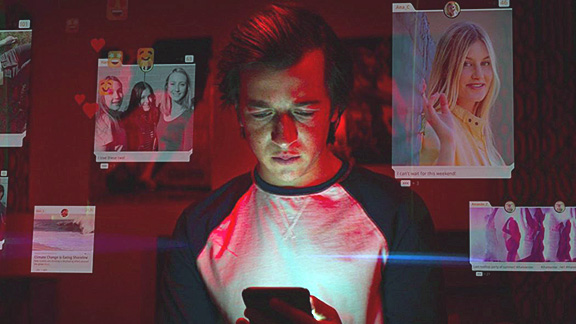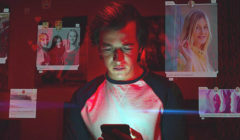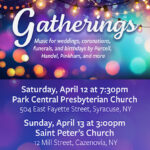Bodies and Knowledge
During the week I wrote this column, I finished the 600 plus page book “The Alphabet Versus The Goddess – The Conflict Between Word And Image,” watched Netflix’s “Social Dilemma,” a documentary about online personal data collection for use in commercial and ideological algorithms, and PBS’s “Frontline” documentary, “The Choice 2020: Trump vs. Biden,” a reflection on the lives of the two current presidential candidates.
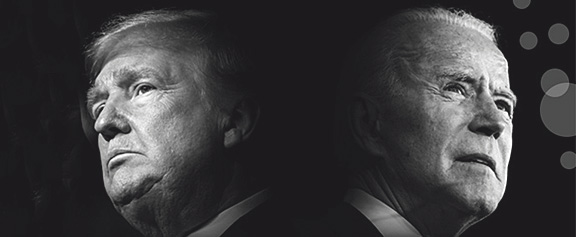 I only know what I know about Trump and Joe Biden from what I’ve read and heard and seen on TV. I’ve read Mary Trump’s book “Too Much and Never Enough.” I like family stories. The “Frontline” documentary included an anecdote told by Joe Biden’s sister.
I only know what I know about Trump and Joe Biden from what I’ve read and heard and seen on TV. I’ve read Mary Trump’s book “Too Much and Never Enough.” I like family stories. The “Frontline” documentary included an anecdote told by Joe Biden’s sister.
When Joe Biden was young, a Roman Catholic nun mimicked Joe’s stutter in front of Joe’s class. Joe Biden’s mother immediately visited Sister and let Sister know she’d better not do it again. I thought of myself in the seventh grade. After I ended an interrogatory sentence with a period instead of a question mark, a nun sent me to ask the third-graders how to properly punctuate a question. Teaching through humiliation used to be common. Prior to entering seventh grade, I had suffered a severe brain injury. I often laughed and cried inappropriately and uncontrollably, and based on what I know now, I believe I suffered from Pseudo Bulbar Affect. I conclude the “me” related portion of this piece, except to add that humiliation can make one compassionate or it can make one join in the bullying. Neurons that fire together wire together. We should know the function of our nervous system so we can learn how to fortify ourselves and live comfortably in our own skins.
 Moving on: the parochial school anecdote about Joe Biden added to the soft spot I developed for him watching him debate Sarah Palin in 2008. Palin talked about her devotion to families. Biden shared his personal experience with family medical issues and the death of family members. Palin stared into the camera and reminded the audience that she was a maverick. Biden exuded humanity. Palin bared her teeth for the camera. That picture was worth a thousand words.
Moving on: the parochial school anecdote about Joe Biden added to the soft spot I developed for him watching him debate Sarah Palin in 2008. Palin talked about her devotion to families. Biden shared his personal experience with family medical issues and the death of family members. Palin stared into the camera and reminded the audience that she was a maverick. Biden exuded humanity. Palin bared her teeth for the camera. That picture was worth a thousand words.
The eyes provide the brain with the most information in the shortest amount of time. In “The Alphabet Versus The Goddess – The Conflict Between Word And Image,” surgeon Leonard Shlain suggests that left-brain emphasis on the written word has caused us, as readers, to miss right-brain oriented wholistic context while at the same time reinforcing masculine notions of the divine through the repetition of male pronouns. Way back when “god” was a “they.” The ancients talked to “god.” People argued and reasoned with “god.”
Shlain describes how some interpretations of the Second Commandment caused religious leaders to characterize Greco-Roman statues and artwork as idols. Religious groups destroyed many statues and in particular, statues of female deities. The Greek pantheon of gods and goddesses were personifications of human and animal powers and attributes. The Greek goddess Psyche, often shown as a butterfly, represented human consciousness and the human soul.
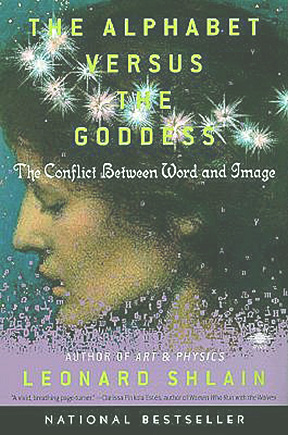
Since I’m thinking about language, I will use psyche in a sentence: my physical brain injury splintered my psyche. Learning about my own body-mind connections helps me take care of my own body and mind. Most of us learn what our bodies are for in a church, in school, and from books that contain language rooted in notions of masculine power, feminine passivity, and mixed and often negative messages regarding female generativity. Girls and women gestate babies inside their bodies and out of their own bone and blood. Men do not. Women matter. Men matter. One size does not fit all in anything.
Words matter. “Red” used to mean communist. Now, “red state” thinkers insist “blue state” thinkers support anarchy and violence in the street. That’s not true. I don’t cry when I see lawn signs stating: “Trump 2020- Make Liberals Cry Again.” People who use media for their own advancement plot their use of words and symbols long before the public catches on. “Frontline’s” 2020 election documentary includes footage of the business fiction “The Apprentice,” suggesting that most people came to learn of Donald Trump’s management skills watching him decisively fire contestants on his TV show.
I recommend “The Choice 2020: Trump vs. Biden” as good contextual coverage of both candidates. It’s available on pbs.org. You can watch it on your smartphone.
Finally, Netflix’s “Social Dilemma,” suggests that smartphones and social media use are addictive and that by creating an addiction to memes with words and visuals, sellers, including sellers of ideology, at no cost to them, gather information on us the buyers so as to focus their marketing. The show ends with an alarmist statement from architects and systems theorist Buckminster Fuller (1895-1983.) I’ll paraphrase Fuller, technologically, we are marching toward utopia or oblivion and we’ll know where we are when we get there.
Feel not alarmed!
There is much instructive information available, in words and pictures, about how our brains, neurochemicals and senses work to make us feel and think a certain way. Politi- cians, tyrants, and cult leaders have always sought to control our attention. We can figure out how they do it. We can choose to think our own thoughts.